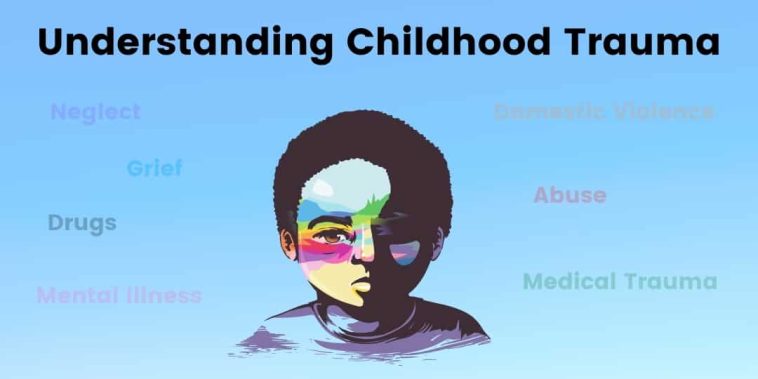Childhood is often perceived as a time of innocence, exploration, and carefree joy. However, for many individuals, childhood might also be marred by adverse experiences that leave lasting imprints on their lives. Childhood trauma, encompassing a range of experiences from abuse and neglect to witnessing violence or experiencing significant loss, can have profound and enduring effects on a person’s mental, emotional, and physical well-being throughout their life.
Understanding the far-reaching consequences of childhood trauma is crucial in offering support and promoting healing for those affected.
The Lifelong Impact of Childhood Trauma
Mental Health Challenges
Childhood trauma can significantly increase the likelihood of developing mental health disorders. Conditions like anxiety, depression, PTSD, and dissociative disorders often stem from unresolved childhood trauma. These conditions may persist into adulthood, affecting various aspects of daily life and overall functioning.
Emotional Dysregulation
Individuals who have experienced childhood trauma may struggle with regulating their emotions. This may manifest as difficulty managing stress, mood swings, and challenges in expressing or understanding emotions effectively.
Physical Health Consequences
Research indicates a correlation between childhood trauma and adverse physical health outcomes in adulthood. Individuals who have experienced trauma may have a higher risk of developing chronic health conditions such as heart disease, obesity, autoimmune disorders, and even a shortened lifespan.
Impaired Relationships and Attachment
Childhood trauma can influence the ability to form secure and healthy attachments in adulthood. Trust issues, fear of intimacy, and difficulties in maintaining stable relationships often stem from early experiences of trauma.
Substance Abuse and Addiction
Trauma survivors might resort to substance abuse as a coping mechanism to alleviate emotional distress. This can lead to addiction and further complicate the process of healing from the trauma experienced in childhood.
Cognitive Impairments
Life experiences continuously shape our complex brains. Yet, certain experiences, like childhood trauma, disrupt cognitive functions such as memory and information processing. These impairments can hinder academic, and professional success and relationships. Despite severe consequences, there’s hope through awareness, therapy, and support. Trauma survivors can strive to heal and reclaim cognitive control.
Self-Esteem and Identity Issues
Trauma often contributes to feelings of worthlessness, low self-esteem, and a distorted self-image. These negative self-perceptions can persist into adulthood, affecting confidence and self-assurance.
Re-Experiencing Traumatic Events
Childhood memories can be remarkable yet challenging to handle. Traumatic events often lead to persistent distress like flashbacks and nightmares. Dealing with these ongoing effects can impede progress. Seeking help from a mental health professional is valuable for managing the aftermath of childhood trauma. It’s never too late to begin healing and regain control over your life.
Impaired Stress Response
Childhood should be a time of joy, growth, and exploration. Yet, for many, it’s marked by enduring trauma, impacting their long-term health. Childhood trauma can alter the body’s stress response system, releasing stress hormones excessively.
This prolonged activation can lead to an overactive stress response, heightening the risk of stress-related disorders like chronic anxiety. Recognizing how childhood trauma affects the body is crucial for preventing harm and fostering healing.
Social and Behavioral Challenges
Childhood trauma profoundly alters lives, affecting social interactions and functioning. Individuals may display behavioral issues like aggression, impulsiveness, or withdrawal, hindering their daily life.
In severe cases, these behaviors might result in legal involvement, requiring a Salt Lake City criminal lawyer’s assistance. Understanding trauma complexities is tough, but seeking support is crucial for affected individuals to overcome challenges and progress toward a better future.
Conclusion
The effects of childhood trauma are complex and multifaceted, reaching into nearly every aspect of an individual’s life. Recognizing these impacts is pivotal in providing appropriate support and interventions to aid in the healing process. Healing from childhood trauma is possible with proper therapeutic interventions, support networks, and a nurturing environment that fosters resilience and growth.
Understanding the lifelong impact of childhood trauma is not just a matter of awareness; it’s a call to action for society to prioritize trauma-informed approaches, provide accessible mental health care, and create supportive environments that facilitate healing and recovery for those who have endured these challenges. By acknowledging and addressing these impacts, we can work towards creating a world where individuals affected by childhood trauma find the compassion and resources they need to rebuild their lives and thrive beyond their broken beginnings.




